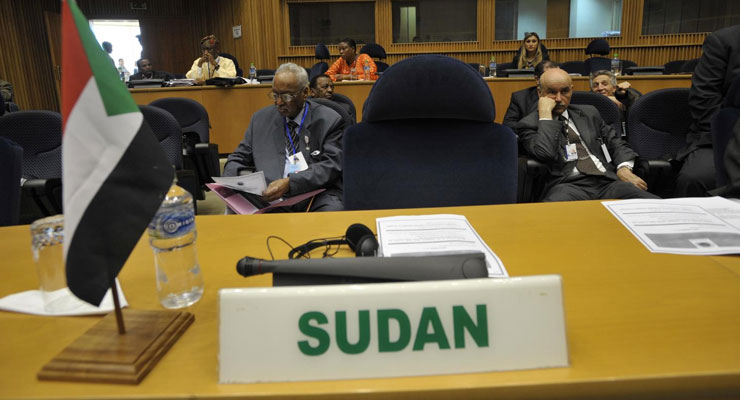
From Voice of America
Sudanese professional and opposition groups called for protests in 12 cities including the capital Khartoum on Thursday, with hundreds marching toward the presidential palace to deliver a written request that President Omar al-Bashir step down.
The protests are part of a wave of discontent over a failing economy that has transformed into demands for the resignation of the autocratic al-Bashir, an Islamist who has run the country for nearly 30 years but brought little improvement to his people.
Mohammed Yousef, a spokesman for the Sudan Association of Professionals, said that protesters were prepared to continue to press their grievances while remaining patient and wise.
“The people of Sudan are known for being particularly determined, stubborn, and for playing the long game. They are not hot-headed, nor do they despair easily,” he said.
The government crackdown has been harsh over the past month, with rights advocates reporting excessive force by police and Amnesty International accusing security forces of firing tear gas and live ammunition in and around hospitals. At least 40 people have been killed in the clashes, according to rights groups, but the government has acknowledged only 24 deaths.
The U.N. High Commissioner for Human Rights Michelle Bachelet called such reports “credible” and “deeply worrying,” urging the government to ensure citizens’ rights to freedom of expression and peaceful assembly, regardless of their political affiliations, according to Sudan’s international treaty commitments.
“A repressive response can only worsen grievances,” she said. “I urge the authorities to work to resolve this tense situation through dialogue, and call on all sides to refrain from the use of violence.”
Bachelet said the U.N. would be ready if asked to deploy a team to Sudan to advise authorities “and help ensure they act in accordance with human rights obligations.”
Hundreds of demonstrators aged in their 20s and 30s gathered in the back streets around the palace, calling for a peaceful uprising and the downfall of al-Bashir, while men in civilian clothing carrying assault rifles — some wearing face masks — blocked the main approaches, activists said.
Security forces arrested several journalists near the palace who were reporting the march, they added, while police fired tear gas to disperse crowds elsewhere in the city’s central Arab Market area. Demonstrations were also reported in Sudan’s central Gezira region as well as the eastern city of Gadarif and the Western region of Darfur.
Activists spoke on condition of anonymity as they weren’t authorized to brief reporters.
The Thursday rallies were called for the cities of Khartoum, Madani, Sinnar, Rafaa, Atbara, Abu Jubayhah, Gadarif, Um Rawaba, Dowim, Al-Abyad, Port Sudan and Geneina.
Separately, a teachers’ union announced a strike in all schools beginning on Sunday over poor work conditions and in solidarity with the protests across the country.
The union said in a statement that it stands against, “murder, injustice and corruption,” as well as the “deteriorating security situation in which the brutal authority uses live bullets, tear gas and excessive violence.”
Sudan’s economy has stagnated for most of al-Bashir’s rule, but its recent lows have been dramatic, with surging prices and a plummeting currency that prompted the protests. He has also failed to unite or keep the peace in the religiously and ethnically diverse nation, losing three quarters of Sudan’s oil wealth when the mainly animist and Christian south seceded in 2011 following a referendum.
Bashir is also wanted by the International Criminal Court for genocide in Darfur.
He has said those seeking to oust him can only do so through elections.
“As for those who want to change the organization of government by way of protest, this is not correct, the national dialogue has specified the mechanism through which the ruling power can be changed, and that is only through elections,” said Ibrahim Al-Sadeeq, spokesman for al-Bashir’s National Congress Party.
Leave a Reply